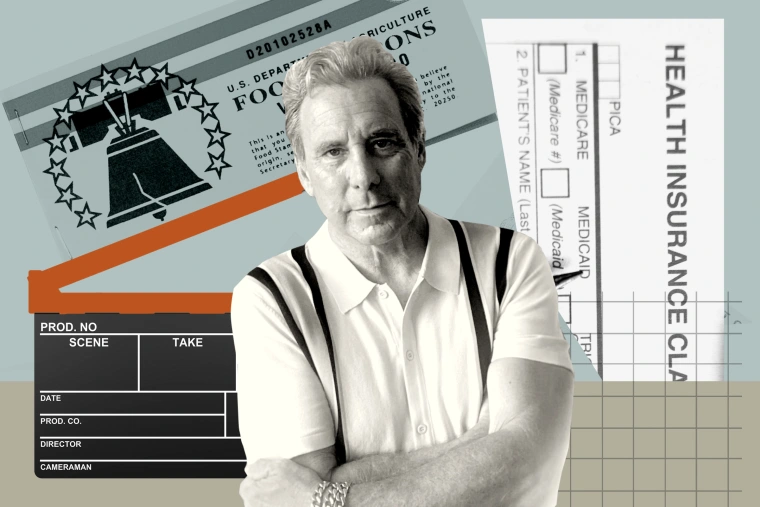Doug Sharp’s journey through the unpredictable terrain of the gig economy and Hollywood’s entertainment industry reflects the resilience and challenges of pursuing one’s passion amidst economic instability. At 59 years old, residing in Los Angeles, Sharp has crafted a livelihood primarily through driving for Uber and Lyft, supplemented by sporadic roles as a paid extra in film and television productions. His story illuminates the harsh realities faced by many individuals navigating a landscape where financial security is elusive and job stability is fleeting.
For Sharp, acting serves as both a creative outlet and a potential pathway to financial stability. His recent experience securing a small speaking role in a production featuring prominent Hollywood figures marked a significant milestone, elevating his daily pay rate from the modest earnings typical of background roles to nearly $1,200 per day. This achievement underscores the unpredictable nature of the entertainment industry, where occasional opportunities for advancement offer glimpses of hope amidst the uncertainty.
However, the inconsistency of acting gigs has prevented Sharp from attaining full benefits from the Screen Actors Guild, leaving him reliant on Medicaid for health insurance coverage. This lack of stability extends to his housing situation, where he alternates between renting from friends and maintaining arrangements he is reluctant to disclose publicly. These living conditions underscore the precariousness of financial security for many in similar circumstances.
Sharp’s academic background—a business degree obtained in 2013 from the University of Massachusetts-Amherst—has not translated into the stable career he envisioned, particularly during the aftermath of the global financial crisis. While ride-sharing platforms initially provided a lifeline, offering flexible hours and steady pay, Sharp eventually phased out his reliance on Uber and Lyft due to declining earnings and increased living costs in Los Angeles.
Despite these challenges, Sharp remains determined to rebuild his life and secure a more stable financial future. His resilience is evident in his ongoing pursuit of acting opportunities, even amidst bouts of depression and anxiety. These mental health challenges highlight the emotional toll of financial uncertainty and the persistence required to navigate a competitive industry.
Sharp’s story sheds light on broader societal issues, including the stigma associated with educated individuals facing financial hardship and the barriers to economic stability in an evolving job market. His experience reflects the need for comprehensive support systems and economic policies that address the diverse needs of workers in today’s gig economy, where traditional employment norms often do not apply.
As Sharp continues to navigate his journey, his story serves as a poignant reminder of the resilience required to pursue personal passions amidst economic adversity. It underscores the importance of empathy and understanding in addressing the complex intersection of creative pursuits, economic instability, and mental health challenges faced by individuals like Doug Sharp in pursuit of their dreams.
